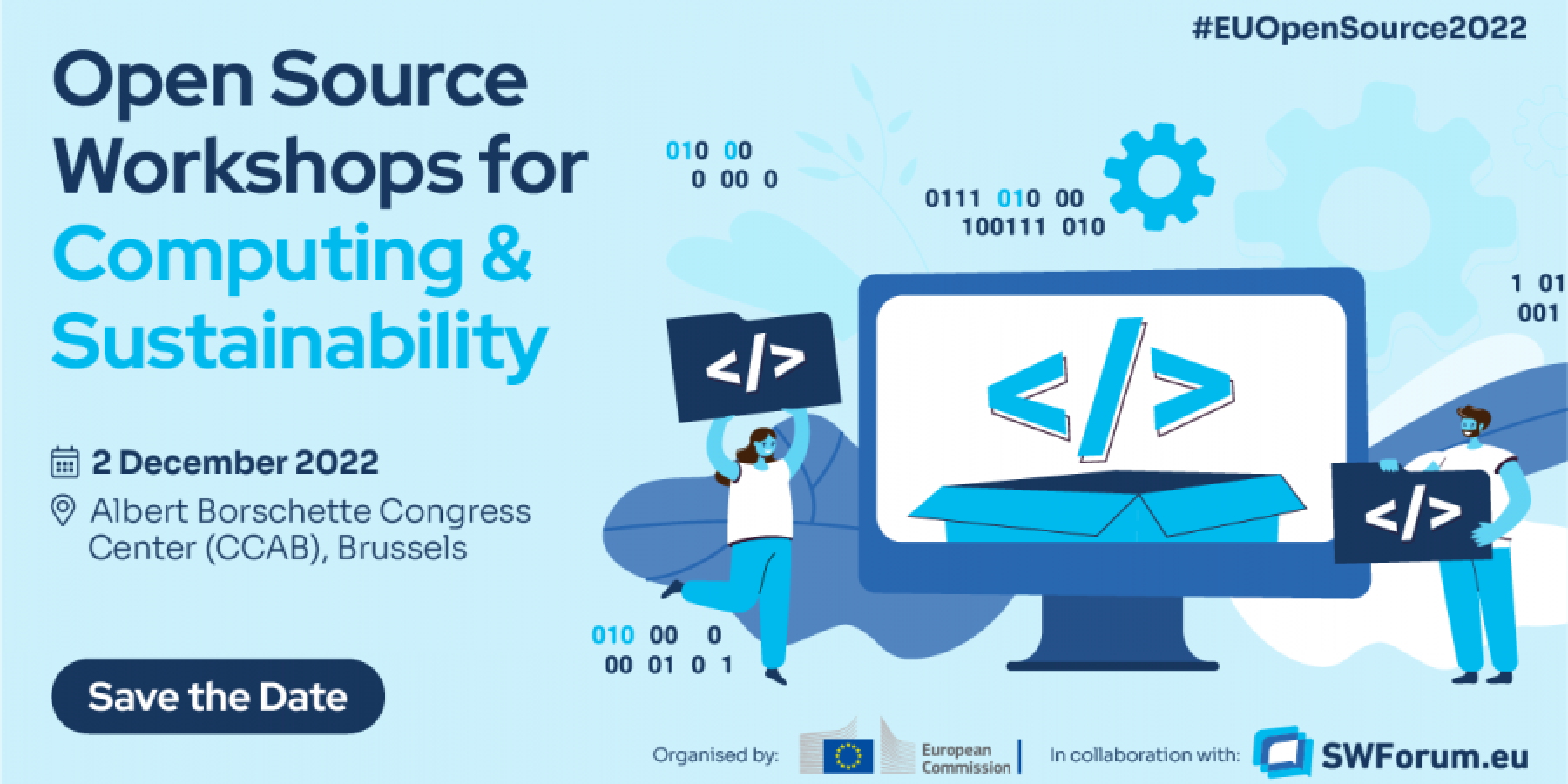
On 2 December 2022, the European Commission in collaboration with the SWForum.eu project are co-organising the workshop "Open Source Workshops for Computing & Sustainability". The workshop offers the opportunity to listen to keynote speeches and parallel workshop sessions focused on:
- Open Source processors for the Cloud Continuum;
- The role of OSS in Artificial Intelligence enabled systems;
- Building Sustainable Open Source Ecosystems for an Interoperable Europe;
- Identifying, fixing and managing critical open-source software used by European Public Services;
- Open Source Software and Cloud Services and Applications;
- The potential of the symbiosis of Quantum Computing and OSS;
- Open-source business applications reuse via the creation of an EU-wide Applications Catalogue for European Public Services;
- Cooperation in the European public sector to solve key open source issues;
- Open standards and industrial use for Open Source;
- Trustworthy and secure ecosystem of OSS;
- Organisational contributions to the open-source ecosystem;
- Practical solutions to ensure long-term sustainability for open-source software
AI-SPRINT at the Open Source Workshops for Computing & Sustainability
Danilo Ardagna, Associate Professor at Politecnico di Milano and AI-SPRINT coordinator, is one of the panelists of the session "The role of OSS in Artificial Intelligence enabled systems: Speeding the AI adoption through OSS"
Workshop Description
AI has acquired a strategic stature within the vision of the European Commission, and a multi-pronged set of objectives is evolving based upon not only technological considerations but also policy-oriented considerations such as ethical issues in AI. OSS has the potential to make significant contributions to each of these objectives. Technologically, much of current AI research, and especially the sub-discipline of Machine Learning (ML), makes use of large, mature open-source components (TensorFlow, etc.). ML also makes heavy use of large datasets for training of the neural networks, and here the principles of Open Data can promote the widespread availability of datasets in all sectors of ML application, ranging from language processing to machine vision. Other challenges to be explored for the potential contribution of open approaches personified by OSS are Explainability/Transparency of ML reasoning (especially in critical applications) and Ethics, such as various forms of bias (gender, race, economic). The use of OSS to make available open platforms / testbeds / facilities for testing ML applications is also an important challenge to explore.